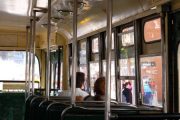Chapter 3
Tomorrow wasn’t better, and the rest of the month was no improvement. Several hard frosts rolled into the valley, destroying their vegetable garden and giving the children chilblains. Then the fog rolled in again, blotting out the life-giving sun and blanketing them in doom. As an act of defiance, Henry worked on the block from daylight to dusk, his axe taking vengeance on the rimu, rata and totara clad hillside. Rebecca waited for him fearfully, and silently thanked God when he returned each evening. Suicide was cruelly common in those hard, difficult times.
Desperate to delay the inevitable, Henry rounded up his breeding ewes and drove them into town on foot. He’d sold his horse to make their last mortgage payment, and the sheep were the only asset he had left. The turnout at the sale yards was disappointing. There looked to be more sellers than buyers, never a good sign. He’d long given up on miracles and told the stock agent to sell with no reserve before leaving to wander around town, as he couldn’t face watching the sale. He spotted a few down-and-out-looking fellows aimlessly wandering the streets. One of them struck up a conversation with Henry, and it was a welcome distraction. The men were from a camp for the unemployed, about 6 miles west of Te Kuiti on the Rangitoto Range. Boredom and despair had driven them into town, and when the bloke he was talking to learned that Henry owned some land, he pleaded for work. The look Henry gave him told the man all he needed to know, and his shoulders slumped as he left to continue his hopeless vigil.
Henry was a brave man, but anxiety had its talons deep in his chest as he made his way to the stockyards to pick up his cheque. Most of the farmers and animals were gone, and only a couple of stock agents and the auctioneer remained.
When the agent saw Henry, he lowered his head, taking a sudden interest in his shoes.
“How did it go?” asked Henry. Despite his best effort, his voice quavered. He knew what was coming.
“Not well, Henry, times are tough and no one's buying unless someone’s giving stock away.”
He handed him a cheque and scuttled off before Henry could react.
Henry stared at the cheque in disbelief and almost tore it up. But his poverty wouldn’t allow him even that small concession.




